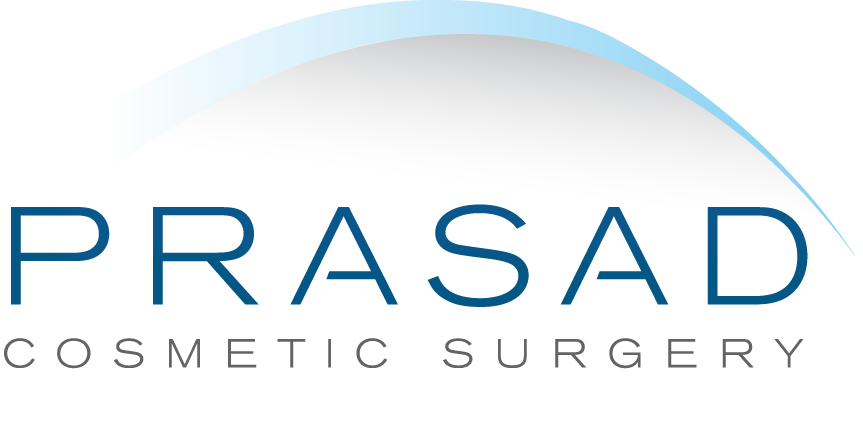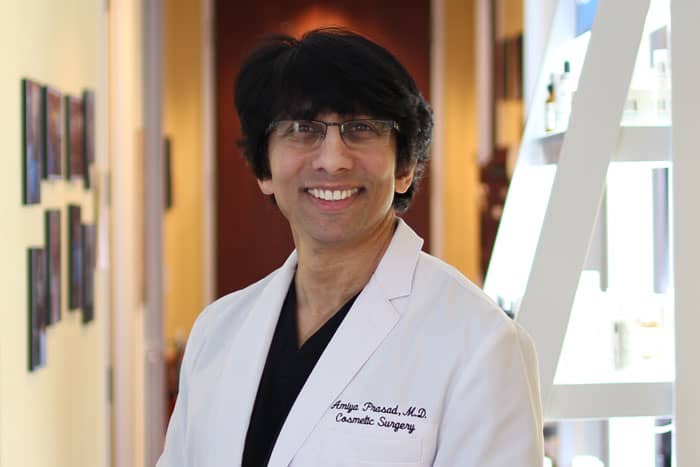Why Acne Scar Removal Treatments or Products May Be Ineffective for You
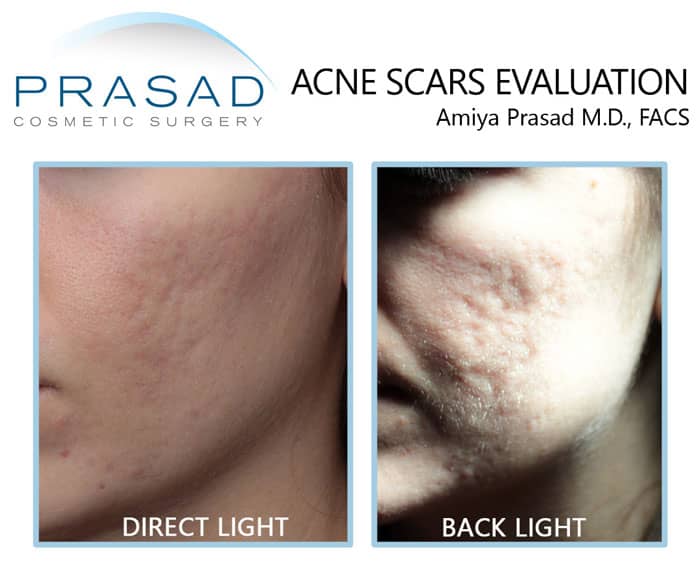
Unfortunately, it is common for people with acne scars to be dissatisfied with their acne scar removal treatments. I see patients who have been treated with a variety of devices, including lasers, radiofrequency, and microneedling. Patients frequently say that they had chemical peels, or platelet-rich plasma or PRP injections but did not see the expected benefits. I’ll share some of my expertise assisting my patients improve the appearance of their acne scars.
I routinely treat people with acne scars with lasers, or radiofrequency devices; I perform acne scar surgery, such as subcision for tethered scars; and I have extensive experience with PRP to enhance skin quality, texture, and hyperpigmentation.
These treatments can help improve the look of acne scars by improving skin quality and texture, as well as tightening and resurfacing the skin. However, there is one key element of acne scars that most treatments cannot address, particularly in deep acne scars which is deeper tissue loss.
Acne scars are primarily caused by inflammation. Inflammation can fragment and disorganize the skin’s architecture, resulting in tissue loss both at the epidermis and deeper levels.
Best Treatment for Deep Acne Scars
Subcision is a treatment that releases the skin’s tethering to the underlying tissue. During subcision, several tools are inserted beneath the skin to remove scar tissue that is dragging the skin inward. Subcision also increases collagen formation as part of the body’s natural healing process. Subcision is typically used for rolling scars. After subcision for a rolling scar, a hyaluronic acid filler can be placed underneath the skin to support the skin for a smoother appearance.
Boxcar scars are more limited to the skin surface and have distinct edges. They are also typically less wide than rolling scars.
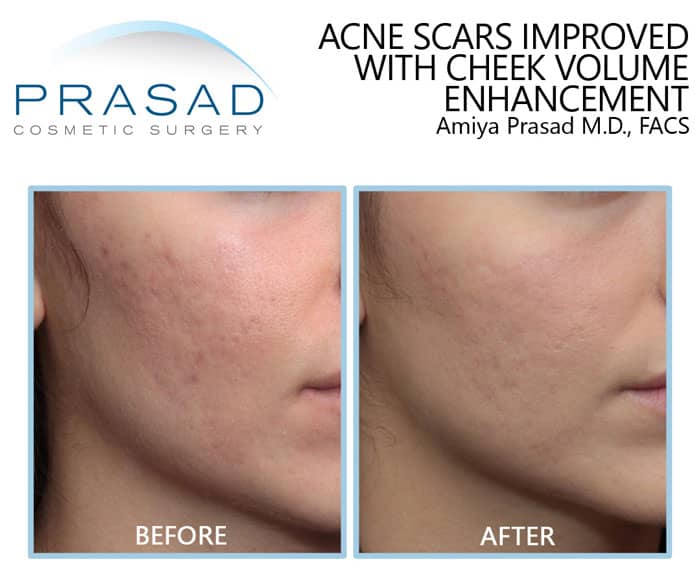
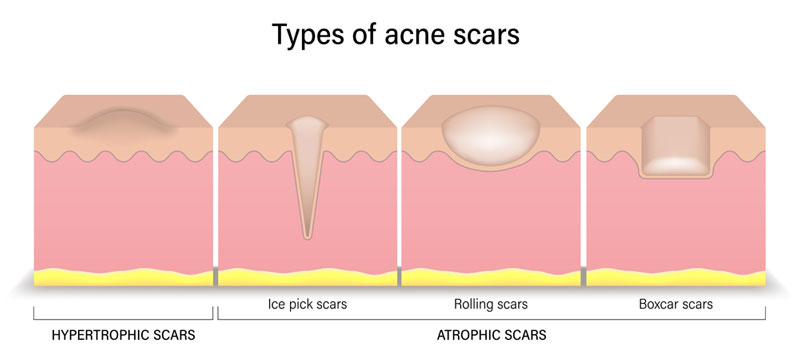
I frequently employ combination treatments to help patients with boxcar scars. For example, I’ll utilize a non-ablative laser to restructure dermal tissue and combine hyaluronic acid with PRP to boost volume and collagen production.
When it comes to hyaluronic acid, insufficient volume beneath the skin is often disregarded. This volume shortfall could be caused by bone projection, fat volume, or a mix of both.
I’ve had many patients who came in to visit me after having had as many skin-focused treatments as possible. I understand that for many of these individuals, volume support beneath the skin might cause projection and smoothing of acne scars.
Rather than inserting filler immediately below the acne scars, I frequently place filler at the bone level using a procedure known as Structural Volumizing. This procedure provides more robust support for the skin at the bone level. Many of these patients have been happy with the outcomes, which they can see right away.
Why Acne Scar Removal Treatment or Products are Not Working for You
Aggressive marketing of devices, in my opinion, is why many people are frustrated after not seeing results after one treatment. This frustration causes many people to go from one practitioner to another, each claiming to have the latest and greatest equipment.
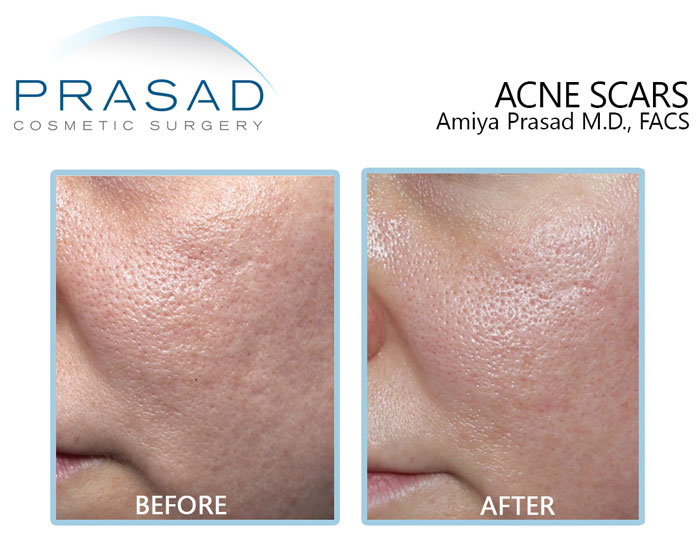
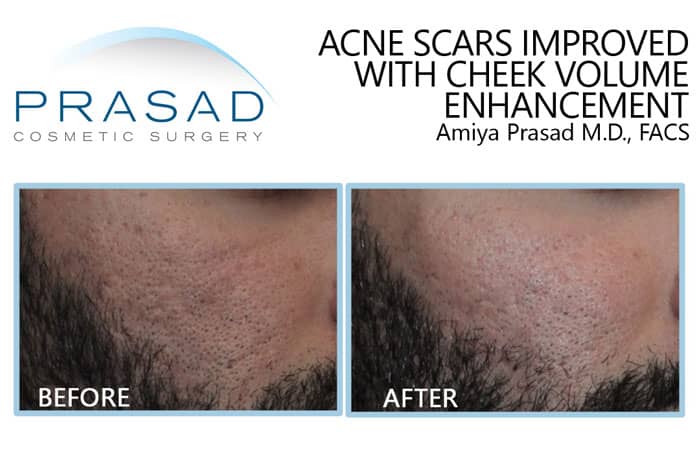
Unfortunately, they frequently wind up hurting their skin much more. Recognizing that there are various types of acne scars, skin tones, and skin types, there is no single “best” treatment that works for everyone. With so many methods and techniques available for treating acne scars, I usually take a conservative approach.
What I frequently do is to treat, observe the results, and customize future treatments accordingly. In my opinion, rather than being manipulated by aggressive marketing focused on financial transactions, it’s better to identify a physician who can provide you with a treatment plan and realistic expectations of results.
I hope this information from my experience helped you.
Acne Scar Treatment Manhattan, NYC and Garden City, Long Island, New York
Dr. Amiya Prasad is a Board-certified cosmetic surgeon, and a Fellowship-trained oculofacial plastic and reconstructive surgeon practicing in Man New York City, and Long Island for over 25 years. If you’re interested in recommendations for your individual situation, fill out the contact form below or you may call any of our offices at (212) 265-8877 in Manhattan, New York City; (516) 742-4636 in Garden City, Long Island; or (703) 356-1336 in Vienna, Virginia to schedule a consultation.
